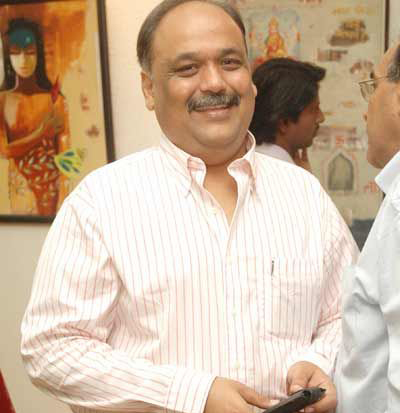
Mumbai, October 1: A non-existing company owned by BJP Rajya Sabha MP Ajay Sancheti bagged irrigation projects worth Rs 1,350 crore in Maharashtra in 2007-08.
The firm, Shakti Kumar M Sancheti Ltd, was renamed SMS Infrastructure in November 2005. Yet, Sancheti was awarded contracts by the Vidarbha Irrigation Development Corporation (VIDC) under the name of the old company. "Once the name of a company is changed, the old name ceases to exist and the new name comes into existence. The Sancheti group used the old name as well as the new name concurrently to obtain more contracts than permitted,'' said officials. Government sources said VIDC's norms permitted a maximum of three contracts to a single contractor. Its tender condition clearly stipulated that in case of violation, the contractor would be blacklisted.
Sancheti is a close aide of BJP president Nitin Gadkari and his family has RSS links for the last three generations. His uncle, Chainsukh Sancheti, is the BJP MLA from Buldhana district.
Documents accessed by TOI reveal that the now defunct firm (Shakti Kumar) went on to bag four contracts; two in Gosikhurd in Bhandara district, one in Amravati district and another in Yavatmal district collectively worth Rs 1,350 crore. (VIDC later cancelled one of the tenders because it was awarded at an exorbitant rate.)
Simultaneously, SMS Infrastructure also procured projects worth an additional Rs 389 crore between 2006 and 2009.
Sancheti was not available for comment despite several attempts to contact him.
MPs protest 250% dam cost escalation
In November 2011, two MPs wrote to Union water resources minister Pawan Kumar Bansal about the unusual increase in the cost of the Purna barrage-2 (Ner Dhamana) irrigation project. The work was awarded to Sancheti. BJP's Haribhau Jawale and Shiv Sena's Nandrao Adul complained that its cost had shot up from Rs 182 crore to Rs 638 crore. "The design finalization was done way ahead after the tender was awarded. This resulted in excess expenditure by more than three times,'' said Jawale's letter. He further said that the original 2008 administrative approval was obtained without following due procedure. "If tender had been awarded post-finalization of design, it would have saved a lot of money and resources. As a result, cost of irrigating the land is estimated at Rs 9.19 lakh a hectare whereas the normal cost is around Rs 2 lakh a hectare,'' he added. The Centre had imposed a condition that the project be completed within the sanctioned amount. "However, reality seems to be far different as the project cost is revised drastically. Definitely, there seems to major manipulation causing undue benefit to certain vested interests,'' said Jawale. He urged the minister not to sanction the revised estimate as it was an "unrealistic'' one.





Comments
Add new comment